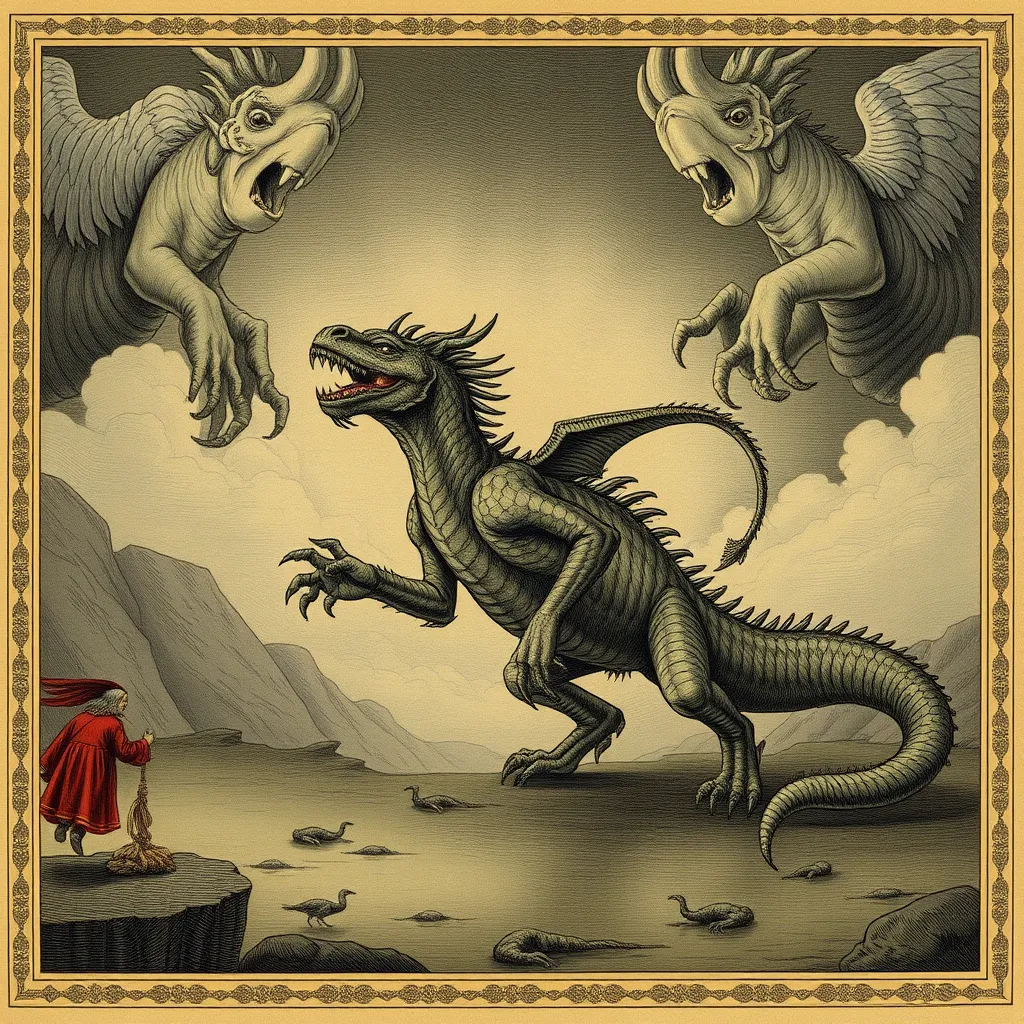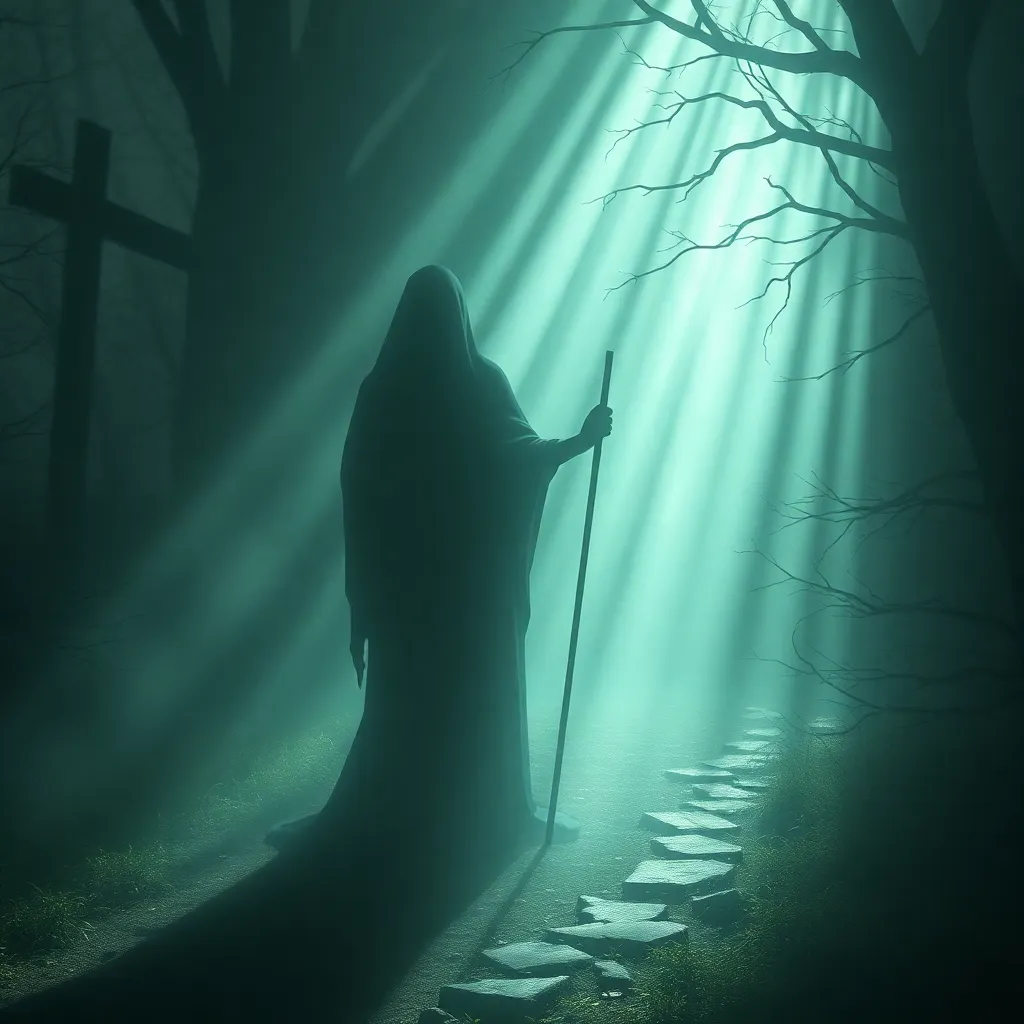The Undead Hunters: Exploring the Mythological Origins of the Haitian Bokor
I. Introduction
The term Bokor in Haitian Vodou refers to a practitioner known for their complex relationship with the undead and the spiritual world. A Bokor serves as both a healer and a sorcerer, wielding significant power within the Vodou community. This duality makes the Bokor a fascinating figure within Haitian culture, embodying the intersection of life and death.
The undead hold a prominent place in Haitian culture, representing not only fear and horror but also a deep-seated connection to ancestry and the afterlife. The concept of the undead in Vodou is steeped in myth, history, and cultural significance, influencing various aspects of Haitian life.
The purpose of this article is to explore the mythological origins of the Bokor, the undead in Haitian Vodou, and the broader cultural implications of these beliefs.
II. Historical Context of Haitian Vodou
The origins of Vodou in Haiti can be traced back to the amalgamation of African traditions brought over by enslaved people from various regions, particularly the Fon, Yoruba, and Kongo cultures. These traditions blended with European influences and indigenous Taíno beliefs, creating a unique spiritual system that emphasizes community, ancestor worship, and the interconnection between the physical and spiritual realms.
During the era of slavery, Vodou served as a means of resistance and cultural preservation for enslaved Africans. It provided a framework for maintaining their identity, spirituality, and social cohesion amid the brutal realities of plantation life.
Over time, Vodou evolved, incorporating new elements while retaining its core beliefs. This evolution reflects the resilience of the Haitian people and their ongoing struggle for freedom and self-identity.
III. The Concept of the Undead in Haitian Mythology
In Haitian Vodou, the undead are often defined as spirits of the deceased who have not fully transitioned into the afterlife. They are typically associated with the concept of zombi, a term that evokes fear and fascination. The undead are believed to have the potential to be manipulated by practitioners like the Bokor, who can summon or control these spirits for various purposes.
The roles and representations of the undead in Haitian folklore are multifaceted. They can serve as protectors or bringers of misfortune, depending on their relationship with the living. Cultural tales often depict the undead as being trapped between worlds, reflecting the struggles of those who have suffered in life.
The cultural significance of these beliefs cannot be overstated. The undead serve as a reminder of the importance of honoring one’s ancestors and the ongoing connection between the living and the dead. This relationship is integral to the spiritual practices within Vodou.
IV. The Role of the Bokor in Vodou Practice
A Bokor is defined as a practitioner who possesses unique skills to work with both the living and the undead. Their responsibilities include conducting rituals, healing, and sometimes engaging in darker practices associated with necromancy. While they are respected within the Vodou community, Bokors can also be viewed with suspicion due to their powerful abilities.
One of the key differences between a Bokor and other Vodou practitioners, such as Houngans (male priests) and Mambos (female priests), lies in the Bokor’s focus on both healing and sorcery. While Houngans and Mambos primarily serve the community through positive rituals, Bokors navigate the darker aspects of the spiritual world.
The Bokor’s connection to the undead and spirits is profound. They are seen as intermediaries, capable of communicating with and controlling these spirits to achieve specific outcomes, whether for protection, revenge, or guidance.
V. Rituals and Practices of the Bokor
The rituals performed by a Bokor related to the undead are often elaborate and steeped in tradition. These ceremonies can include:
- Invocation of spirits through chant and prayer
- Preparation of specific talismans designed to protect or control
- Use of herbs and natural elements believed to enhance spiritual power
Talismans, such as grigris, are commonly used by Bokors to channel spiritual energy and protect individuals from harm. Herbs play a critical role in rituals, with specific plants being associated with different spirits and their attributes.
Case studies of notable Bokor rituals reveal the complexity of their practices. For example, some rituals may involve offerings to the spirits, while others might require the participation of community members. The outcome of these rituals often reflects the Bokor’s skill and understanding of the spiritual world.
VI. The Bokor in Popular Culture
The representation of the Bokor in literature, film, and media has significantly influenced public perceptions of Vodou. Often depicted as sinister figures, these portrayals can perpetuate stereotypes and misconceptions about Haitian culture. Examples include films like The Serpent and the Rainbow and various horror novels that depict Vodou as a dark and malevolent force.
The impact of these portrayals extends beyond entertainment, shaping how Vodou is viewed by outsiders. The mystique surrounding the Bokor character often overshadows the rich cultural and spiritual practices of Vodou, leading to a skewed understanding of its significance.
Moreover, the influence of the Bokor character on horror genres has led to a fascination with the undead, blending elements of fear, spirituality, and the supernatural.
VII. Contemporary Perspectives on the Bokor and the Undead
Modern interpretations of Bokor practices vary widely. Some practitioners emphasize the healing aspects of Vodou, focusing on community and ancestral connections, while others might delve deeper into the more esoteric and darker elements associated with the undead.
The cultural significance of the undead in today’s society remains strong. Many Haitians continue to honor their ancestors through rituals and celebrations, reinforcing the belief that the dead play an active role in the lives of the living.
The ongoing legacy of Bokor traditions is evident in contemporary Vodou practices. The integration of modern elements with traditional beliefs reflects the adaptability of Vodou as a living religion, continually evolving while preserving its core values.
VIII. Conclusion
In summary, the exploration of the Bokor and the undead in Haitian Vodou reveals a complex interplay of history, culture, and spirituality. Understanding the origins and practices of the Bokor provides valuable insights into the broader context of Vodou and its significance in Haitian society.
Reflecting on the importance of respecting and preserving these cultural narratives is essential for fostering a deeper appreciation of Vodou and its place within the global tapestry of spiritual practices. As we engage with these beliefs, we must strive to honor their complexity and the rich heritage they represent.



